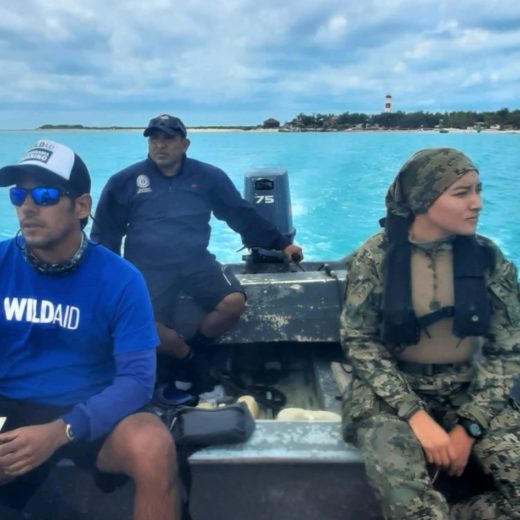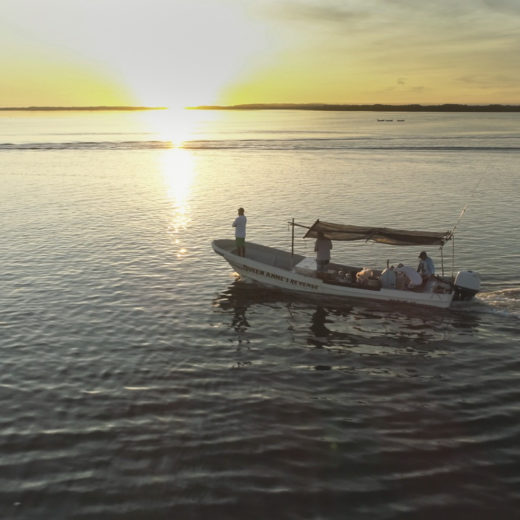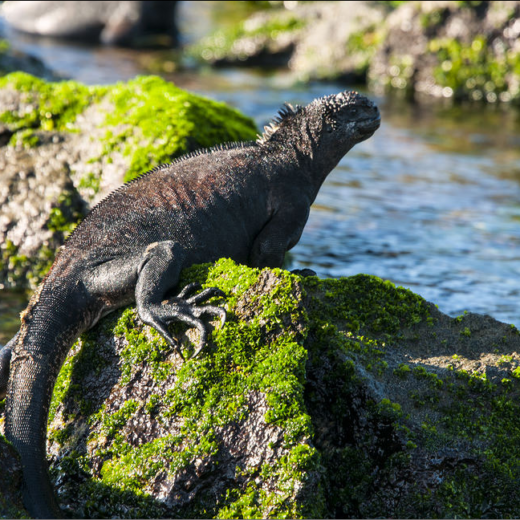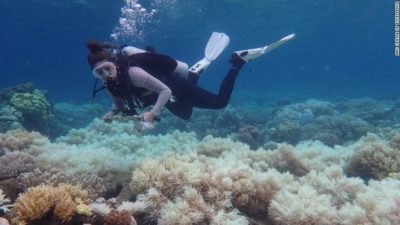
BY CHELSEA CO AND SILVIA BOR, WILDAID MARINE PROGRAM
Last month, aerial studies conducted by scientists revealed devastating coral bleaching in Australia’s Great Barrier Reef due to record-breaking temperatures this year caused by climate change.
This is the fourth major coral bleaching event in the Great Barrier Reef since 1998, and 90% of its corals have experienced bleaching since then. The event last year killed nearly two-thirds of the reef, with little hope of renewal, and now after an unprecedented back-to-back bleaching event, scientists fear the worst for the future of the reefs.
According to Professor Terry Hughes who helped lead the studies, “Climate change is not a future threat. On the Great Barrier Reef, it’s been happening for 18 years.”
While the future of the Great Barrier Reef is uncertain, climate change affects all coral reefs, which house 25% of marine life, and other marine ecosystems that supply protein for hundreds of millions of people. According to The New York Times, the loss of that food supply could become a humanitarian crisis.
In addition to climate change, coral reefs are highly susceptible to other environmental stressors such as unsustainable fishing, coastal development, invasive species, ocean acidification and pollution.
All of these have one thing in common: they are driven by humans. Our actions, no matter how small, make a difference for our oceans, the planet and possibly the Great Barrier Reef. Here are five things you can do to help now.
Avoid single-use plastics:
Bring your own reusable bag when you go shopping. Reusable water bottles and straws help to decrease the amount of plastic that ends up in our landfills and oceans, some of which can ensnare marine life.
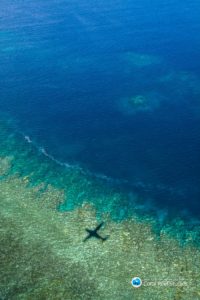

Spare the air:
No matter your destination, consider your transportation options when heading to work or other outings. You could carpool, bike or walk to reduce carbon emissions and burn some calories. You can also spare the air by purchasing local foods to reduce transportation emissions and support local vendors.
Practice conscious eating:
Livestock produces between 20-50% of manufactured greenhouse gases and has been linked to higher risks of cancer and heart disease by the World Health Organization. You can do your body and the planet a favor by reducing your meat intake.
Support marine reserves:
Marine reserves have been proven to be effective at reducing unsustainable fishing and protecting coral reefs. Your support for WildAid ensures the protection of these pristine habitats. You can also check the Seafood Watch app whenever shopping for seafood or eating out to support sustainable fishers.
Share your knowledge:
Lastly, you can make a difference for the ocean by spreading the word about climate change, plastic pollution, unsustainable fishing and other human activities that directly contribute to the state of our oceans and fish stocks. By sharing your knowledge, you might inspire someone else to take action and double your impact.
We have a lot of work to do to ensure the survival of the world’s coral reefs, but collectively, small actions to reduce our impact can make a difference to reverse the current trends and help fish populations thrive, coral reefs recover and ensure food security for coastal communities.
Stay in touch and get the latest WildAid updates.
SIGN UPAbout WildAid
WildAid is a non-profit organization with a mission to protect wildlife from illegal trade and other imminent threats. While most wildlife conservation groups focus on protecting animals from poaching, WildAid primarily works to reduce global consumption of wildlife products such as elephant ivory, rhino horn and shark fin soup. With an unrivaled portfolio of celebrity ambassadors and a global network of media partners, WildAid leverages more than $308 million in annual pro-bono media support with a simple message: When the Buying Stops, the Killing Can Too.
Journalists on deadline may email communications@wildaid.org
